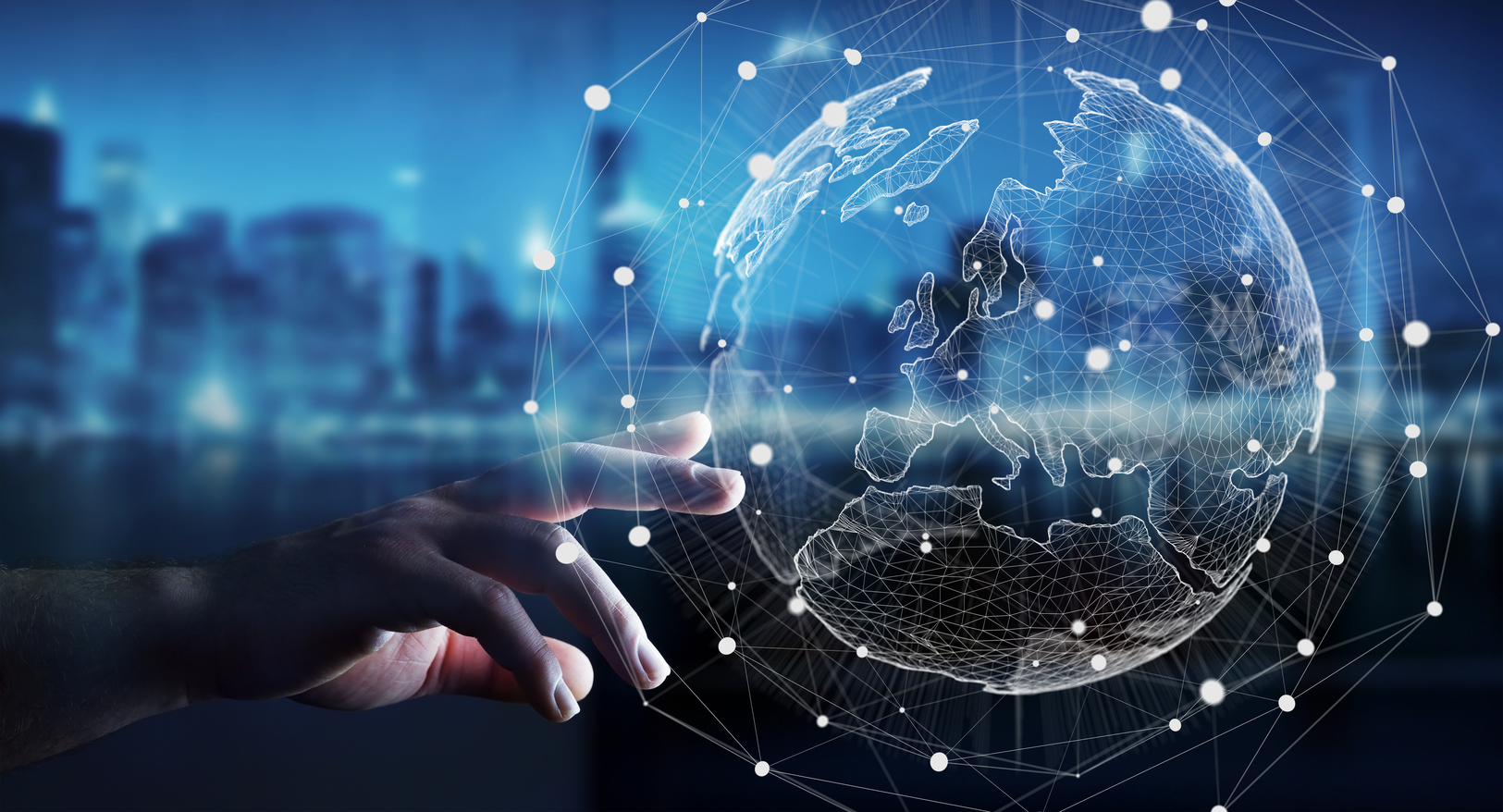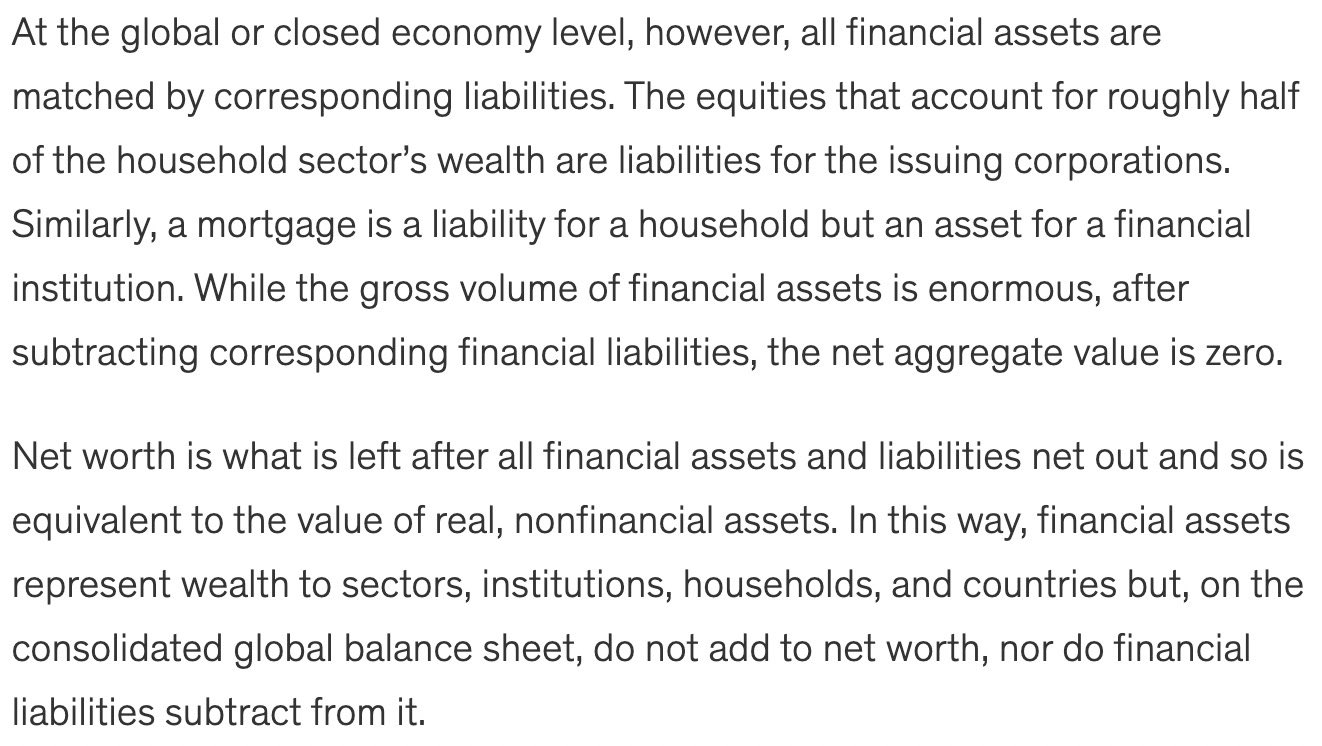
¶ The Internet Economy
¶ Does Crypto Eat the World
Think about Ethereum as the World Computer and the promise of programmable money.
Here's the unspoken question: “so what does this look like in 50+ years? Does crypto eat the world?”
Real talk? I don’t think so.
¶ Two Economies
The modern system is built out of two economies: the real economy and the financial economy.
- Real economy - production, transportation and consumption of goods and services.
- Financial economy - allocation and deployment of resources across space and time.
The real economy concerns things that individual humans need to survive and/or live a high quality life.
The financial economy is responsible for ensuring the all the necessary resources are in the right place at the right time to make the real economy possible.
¶ The Power of Finance
Buying a burger? No problem, no financial economy needed.
Buying a house? Most people don’t have enough cash… but most people will earn enough over their life to afford a house.
A loan is a tool that allows you to pull forward your future earnings and spend it today.
At its best, the financial economy is magic. It allows people and businesses to manipulate value across time and space.
- When capital is needed, finance can manifest it before your eyes.
- When it’s not, finance can whisk it away and use it for something else productive.
¶ Too Much of a Good Thing
Unfortunately, things are not at their best. Over time, the financial economy has grown from a supporting role to the main act.
According to McKinsey, the two are roughly equal in size.

The problem? As McKinsey put it “At the global level, real assets constitute net worth, while aggregate financial assets and liabilities net to zero.”
Put another way, the more capital that gets tied up in the financial economy, the less is available for the real economy.
¶ Huge Problems
Along with climate change, the growing disconnect between the financial and the real economy is the crisis of our generation.
But this isn’t a story of our parents our grandparents. This is the story of the millennia; you can trace it back to ~1490.
The rise of The West is the story of the development of modern finance.
The invention of the printing press by Gutenberg, the concentration of wealth by Fugger, the intensely expensive wars of The Catholic Monarchs.
This was the crucible that gave us finance.
¶ The Internet
For 500 years, mankind have been developing off of those fundamental principles.
And then about 30 year ago, we had our Gutenberg moment. In October 1994, Jim Clark and Marc Andreessen released Netscape.
The world has never been the same since.
I’m not going to try to describe the impact of the internet, partially because we’re all living it but mostly because we have barely seen anything yet.
The printing press threw Europe into chaos for centuries and reshaped the planet.
16 years ago, I was lazy in World of Warcraft and I asked my parents if I could “buy gold.” They thought I was being groomed.
10 years ago I went on a tour of Riot Games. My dad turned to me and said “can you believe this? All from selling NOTHING”
We are so early.
¶ Three Economies
The modern system is built out of two economies: the real economy and the financial economy.
The future system will be built out of three economies: the real economy, the financial economy and the internet economy.
Ethereum is the credibly neutral computer that runs the internet economy.
Just like the real/financial economies today, the real/financial/internet economies will be distinct entities that are seamlessly integrated.
You might deposit your savings at a bank, they might issues loans on Aave, someone might take an Aave loan to buy a house.
History is funny sometimes, the same time it destroys the old way it provides the path forward.
The printing press split Christianity, remade Europe, gave us the scientific method and so much more.
The printing press didn’t cause any of this, but it did catalyze all of it.
Take a look at the world around you. Things are falling apart. But history is funny sometimes.
¶ Resources
Source Material - Twitter Link
Source Material - PDF